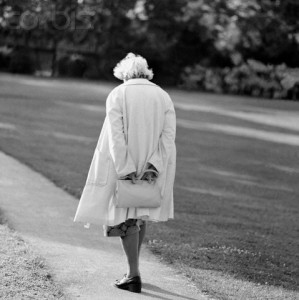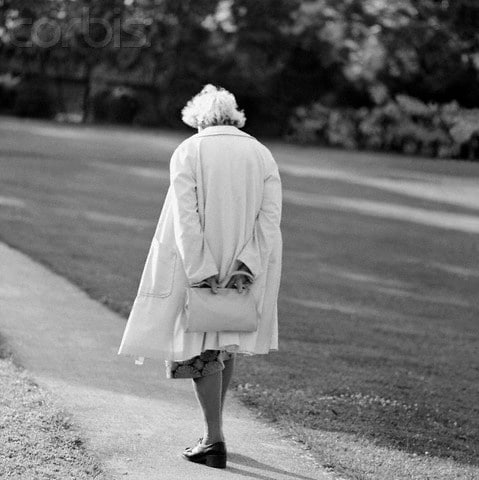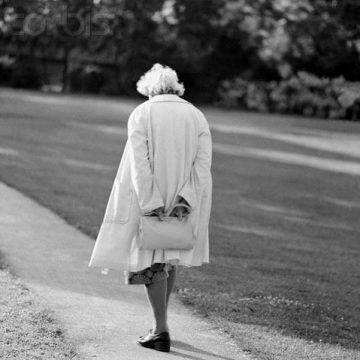 The other week, my mother called me. “Do you think we can go and visit Cordelia? I talked with her the other day, and I think she’s very lonely. Maybe we can go out to dinner, and then we can bring her over to your place so that she can see your new home? What do you think?” Sure mom, that sounds great!
The other week, my mother called me. “Do you think we can go and visit Cordelia? I talked with her the other day, and I think she’s very lonely. Maybe we can go out to dinner, and then we can bring her over to your place so that she can see your new home? What do you think?” Sure mom, that sounds great!
Cordelia. I’ve only met her a handful of times that I can remember, and never known much about her, but I’ve heard about her my whole life. A coworker and very good friend to my mother when she was young. Cordelia was the one who warned my mother against smoking. “Don’t start, it’s a very expensive habit.” And she was the one who helped my mother before and after I was born, as my father was battling for his life against a case of fulminant hepatitis from a needlestick at work. I’ve heard less and less during the last decade. Just that she was living in a old folks’ home and that her mental status was on the decline.
So it was, on the day of the proposed dinner, that I got up early to give my home a good scrubbing down. I’d been working a lot the previous two weeks, and was a little wistful at spending a rare day off on housekeeping. But, by the early afternoon, the place was sparkling. And then I got another phone call from my mother. “Dora, I haven’t been able to get in touch with Cordelia. Her phone is disconnected. I don’t think she’s the type to harm herself, she’s very religious. But I’m worried. Remember the other time we visited? I took her out to dinner while you shopped for groceries. She hadn’t been eating much that week because she’d given most of her money to her niece. Anyway, I’m glad that you are coming with me. I’ll be there in a little bit.”
When my mother picked me up, she filled me in on a few details on the short ride over. Cordelia had served in the military, and had married a military man. They’d had a child. The child had cystic fibrosis and died of complications when he was in his teens. Somewhere along the line, the parents got divorced. Now, Cordelia lived in this elderly community, on a small pension. She had dementia, and her only nearby relative was a niece that sometimes needed financial assistance.
We soon arrived at the home, and approached the front door with a bit of trepidation. It was a little after hours, and the only way in was via a call box. If her phone was disconnected, how would we be able to get to her? If she wasn’t answering, the phone or the door, would the administrators of the home believe our story and let us see her? Luck, however, was on our side, and we slipped in the door as a resident walked out, passing by the elderly women congregated in the front lobby, with their pouffed hair and loud (hearing aids/lack thereof?) voices. As I felt their eyes follow us to the elevator, I thought to myself, That could be me in thirty or forty years.
As we knocked on Cordelia’s door, I felt a flash of fear. I didn’t want her to be dead. Yes, I’m a nurse, but I’ve always worked with children, most of whom are so sick that they aren’t even conscious, much less able to talk. I realized again how woefully inadequate I feel when dealing with elderly or psychiatric patients. I wished a small prayer, Please, don’t let her be dead. If she is, I’m glad to help. But please. Don’t let her be dead.
And then she answered the door, in as good health as the last time I’d seen her. “Oh Tina and Dora! How good to see you! How are you? No, I can’t go out to dinner. I just got out of the shower. My hair is all in curlers! But how good to see you. I was just thinking of you. Sit over here. Let me move these pictures. I had them out to keep me company.”
We sat and Cordelia fluttered around. She’d had the pictures out, since Mother’s Day was fast approaching. She talked about her son, and how much she missed him. About how, after he died, she’d wanted to die as well. How she had gone to the cathedral for comfort, and had a vision of Mary that gave her the strength to go on. She showed us the pictures of her parents and siblings, and told us how lonely she sometimes got. She talked about the trials of living in the home. Good neighbors and bad ones. Helpful staff, and staff who she thought occasionally stole from her. She pointed to a Christmas card just above the light switch, which had our family portrait on it, saying that she kept it where she could see it often. We talked about each person in it. She recounted stories of how she and my mother had gone to visit my father in the hospital daily. How worried they had been about him, and how my mother had contemplated the possibility of being a young, widowed mother. How relieved they were when he pulled through. How she had demonstrated to my inexperienced parents how to hold me. How happy she had been for all of us.
We sat and talked for a long time. How long was evidenced by the grumbling of my stomach, which had only the small protein bar in it, which I’d grabbed when I thought we might be running Cordelia to the hospital. We were able to coax her into coming out to dinner, after she’d tried and succeeded in fixing her hair.
We went to dinner and talked some more. Oh yes, Cordelia is a talker. It seemed we repeated the same conversations multiple times during the evening. And even though I could hazily pinpoint times when I thought I could see the dementia taking over, I could never be sure. Some of her stories made me laugh. Some brought tears to my eyes. Some made me incredulous. And some made me want to get the police involved.
During the evening, Cordelia articulated some thoughts that had been percolating in my head for a while. During dinner, she asked (again) about my job. I told her (again) that I was a nurse, and worked with critically ill children. She said, “How lucky that you have such a good career. You’ll always be in demand. And that you work with children! Maybe some handsome doctor will come and sweep you away. But if it’s meant to be, it will be. But even if you don’t get married or have children, at least you have the opportunity to be with children on a regular basis. But, you never know. What’s meant to be will be.”
And it’s true. I may never marry. And even if it happens, I may never have children. But looking into Cordelia’s smiling face, and knowing a little bit more about her life, I was struck by the knowledge that not one of us is cut off. We are inextricably tied together. If not by blood, then by love, service, good memories and plans for the future.
After dinner, we drove over to my home so she could see the place. She ooh’d and aah’d at all the right places. And she and my mother signed my WE canvas together. And she wrote underneath, Friends Forever.
When we returned to her home, I embraced her. Feeling the frailness of her bones. My mind flashed over the evening, over her strengths and weaknesses, the long life she’s led, and the spots of joy and pain in her current existence. And I resolved to do better by her. This women who had mothered me and my parents at such a painful and uncertain junction in our lives. She has no child right now to call her own. Except me.




14 Responses
Thank you for writing that. I love that you could see “This women who had mothered me and my parents at such a painful and uncertain junction in our lives.”
That is one of the beautiful things I learn as I get older. The ways that women help others in so many ways during such painful times. And it affects who I want to be.
It seems to me it is what Jesus wants from us.
Dora, this made me teary at the end. Thank you.
And I love this. This is what I want for every person. “I was struck by the knowledge that not one of us is cut off. We are inextricably tied together. If not by blood, then by love, service, good memories and plans for the future.”
Oh, this is so beautiful, Dora. Life really is all about making connections, reaching out, being good to people.
Beautiful. Thanks for sharing!
so wonderfully beautiful. it reminds me of time spent with my grandma…how frail she is, how vibrant she is, how loving she is…and the hair must always look good. always.
What a beautiful post…just, beautiful. It brings back my best memories of taking great-grandmothers out to dinner and hearing their stories and feeling connected to something stronger than me that stretched out and supported me from behind. Those invisible bonds are powerful and worth paying attention to. Thank you for sharing.
I’m glad that the piece has resonated with you!
In many ways, this piece reminds me of the good work that my mother does with visiting teaching. Over the years, she has visited a lot of people who generally don’t, or are unable, to come to church regularly. And it’s when I feel resigned when I accept appointments with visiting and home teachers, I just look to her example and just go with it, knowing that it has the potential to be great.
Wow. I love the way you step outside yourself in this experience to really feel Cordelia’s life.
Thank you for sharing this thoughtful and tender story. It makes me want to be a better person and especially to appreciate the people in my life.
Wow! This is an AMAZING website! How come I didn’t know about this earlier??
It makes me think of all the ways we can be our best selves by making connections with those that need us. And how much we need them. Thanks for giving us this part of your life.
Dora,
Thanks for sharing this emotionally charming story about you, your mother and Cordilia.
Sometimes we have good intentions regarding the elderly, or ill, but we often fail to follow through with action, tenderness and mercy. Good for you for following through and for sharing the story with us.
Thank you for illustrating this so beautifully, Dora.
[…] the last two questions, you might want to take a look at this beautiful essay by Dora, “A Visit With Cordelia” Another great essay (that was also referenced out our lesson on Work) is Heather’s “Service […]
This is really awesome . It is a way of connecting with those who needs you .